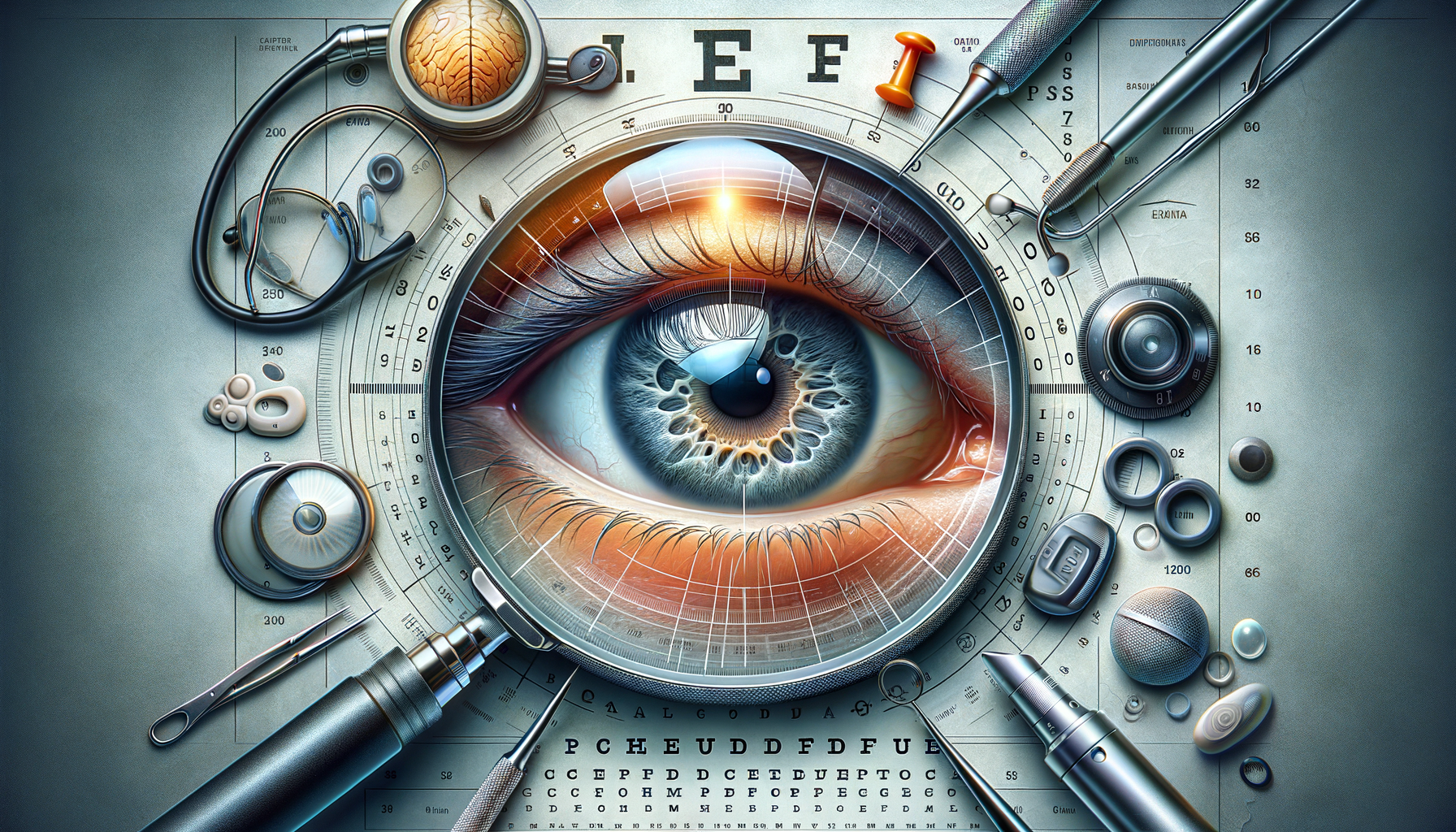The Importance of Regular Eye Check-Ups
Regular eye examinations are a crucial aspect of maintaining overall health and well-being. The eyes are not only windows to the world but also mirrors reflecting the state of our health. A comprehensive eye exam can detect more than just vision problems; it can also uncover signs of chronic conditions like diabetes and hypertension. According to the American Optometric Association, adults should have their eyes checked every one to two years, depending on age and risk factors.
Skipping routine eye exams can lead to late detection of eye diseases such as glaucoma, macular degeneration, and cataracts, which can silently progress without noticeable symptoms. Early detection through regular check-ups can prevent significant vision loss and help maintain a high quality of life.
Incorporating eye exams into your health routine is as essential as visiting your dentist or general practitioner. By doing so, you ensure that any potential issues are addressed promptly, safeguarding your vision for the future.
Choosing the Right Eye Care Professional
Selecting an eye care professional is a decision that requires careful consideration. There are primarily two types of eye care specialists: optometrists and ophthalmologists. Understanding the difference between these professionals can help you make an informed choice based on your needs.
Optometrists are healthcare professionals who provide primary vision care, including sight testing and correction, diagnosis, treatment, and management of vision changes. They are well-regarded for their expertise in prescribing glasses and contact lenses, as well as managing common eye conditions.
Ophthalmologists, on the other hand, are medical doctors specializing in eye and vision care. They perform eye exams, diagnose and treat diseases, prescribe medications, and perform eye surgery. If you have a complex eye condition or require surgical intervention, an ophthalmologist is the professional to consult.
When choosing an eye care professional, consider factors such as their qualifications, experience, patient reviews, and the range of services they offer. A well-regarded specialist with a comprehensive approach to eye care can provide peace of mind and ensure your vision is in capable hands.
Understanding Different Eye Conditions
Understanding common eye conditions can help you recognize symptoms early and seek appropriate care. Some prevalent conditions include:
- Myopia (Nearsightedness): Difficulty seeing distant objects clearly. It is often diagnosed in childhood and can progress with age.
- Hyperopia (Farsightedness): Difficulty focusing on close objects, more common in adults.
- Astigmatism: Blurred vision at all distances due to an irregularly shaped cornea or lens.
- Presbyopia: Age-related difficulty in focusing on close objects, typically occurring after age 40.
Other serious conditions include glaucoma, characterized by increased pressure in the eye, and macular degeneration, which affects central vision. Early detection and treatment are crucial for managing these conditions effectively.
Regular consultations with your eye care professional can help monitor these conditions and implement timely interventions, ensuring your vision remains as robust as possible.
The Role of Technology in Eye Care
Technology has revolutionized the field of eye care, enhancing diagnostic accuracy and treatment outcomes. Modern eye care facilities are equipped with advanced technology to provide comprehensive care.
Diagnostic tools such as Optical Coherence Tomography (OCT) allow for detailed imaging of the eye’s structures, aiding in the early detection of conditions like glaucoma and macular degeneration. Digital retinal imaging provides high-resolution images of the retina, enabling precise monitoring of changes over time.
In terms of treatment, laser technology has transformed procedures like LASIK, making vision correction safer and more effective. Innovations in contact lenses and eyewear, such as blue light filtering lenses, offer additional protection and comfort for modern digital lifestyles.
Staying informed about technological advancements can help you make educated decisions about your eye care options and ensure you receive the most effective treatments available.
Conclusion: Prioritizing Your Vision Health
Your vision is a precious asset that deserves attention and care. By prioritizing regular eye check-ups, selecting qualified eye care professionals, understanding common eye conditions, and embracing technological advancements, you can safeguard your vision for the future.
Remember, the journey to optimal eye health is a lifelong commitment. By taking proactive steps today, you ensure a clearer, healthier tomorrow. Trust in the expertise of well-regarded eye specialists to guide you on this important journey.




Leave a Reply